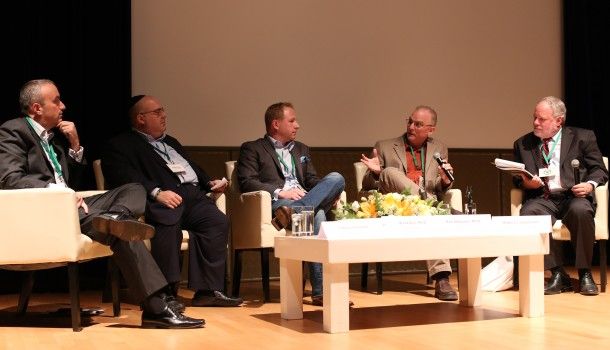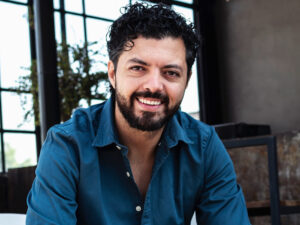Some big investors are looking at Ag’s new opportunities to be had. Just a few months ago, Monsanto bought Climate Corp for a whopping $930 million. More recently, Horizons Ventures, the investment firm of the big-hitting Chinese investor Li Ka Shing, invested in Kaiima, an Israeli biotech company that raised $65 million from investors. There’s lots of room to grow, and therefore, lots to learn.
Along with Ron Meeusen of agtech venture capital firm Cultivan Ventures, Mitchell Presser, from agribusiness private equity fund Paine & Partners, and Gidel Soesman of GreenSoil Investments, and panel chair Robert Grossman from Greenberg Traurig LLP, I spoke on a panel discussing key fundamentals driving growth in agriculture investment.
The panel unanimously felt that precision agriculture offered the biggest opportunities for ag investment. In order to feed nearly 10 billion people by 2050, accommodate a growing middle class that will have greater demand for agricultural output, and comply with tightening constraints on our land and water use, the world’s agriculture community has a lot on its plate. Precision agriculture, or PA as industry folks call it, is a promising possibility as part of the solution.
For those who are new to the concept, PA focuses on optimizing input use and observing intra-field variation and deploying resources in an optimal manner. This includes measuring intra-field soil conditions to determine optimal application of inputs and seed spacing. Examples of PA are: drip irrigation systems, which minimize water use by targeting irrigation to the root system; measuring soil moisture and nutrient levels to control the application of inputs at a specific location on the field, (not too much, not too little); and GPS data to control harvesting and planting decisions.
 While PA has the potential to increase yields, farmers are more incented to adopt PA practices to maximize income, rather than yield.
While PA has the potential to increase yields, farmers are more incented to adopt PA practices to maximize income, rather than yield.
Over the last decade, we’ve seen commodity prices increase about 250%, which has been good for farmers. But input prices (farmer costs) have also increased by nearly 200%. Thus, if commodity prices stabilize, yield growth continues to slow, or input costs continue to increase, we expect that farmers will look to reduce input costs to maintain or improve farm incomes, rather than focus on maximizing yields.
For example, if farmers can use precision agriculture to reduce input costs by 50% at the expense of a 10% decrease in yield, we can expect less food production overall. So precision agriculture may do little to address food security and the requirements to double, or perhaps triple production levels by 2050.
However, if farmers can increase their profit margins through precision agriculture, this should drive even more investment into companies that can efficiently increase yields through biotechnology and novel breeding programs. The key is scientific research into ensuring crop yields are high enough in comparison to the crop cost.
Fortunately, a recent report indicates that precision agriculture has a greater impact on increasing yield than decreasing input costs. The report winter wheat found input savings of $24.50 per acre and output gains of $42.00 per acre for $66.50 increase in income, although this only applied to farms >5,000 acres.
 Precision Ag is a promising field, but not one without its challenges. But with the right investment, counseling and research, PA could be part of the answer for both safe investments and food security.
Precision Ag is a promising field, but not one without its challenges. But with the right investment, counseling and research, PA could be part of the answer for both safe investments and food security.
I would like to thank my hosts Steven Rhodes, the CEO of Trendlines, Nitza and Sarai Kemp of the Mofet Venture Accelerators for hosting us and this wonderful event.
—
Rob Leclerc is the CEO of AgFunder, an online investment platform for global agriculture. You can follow him on Twitter at @robleclerc, connect with him on @LinkedIn, and or email him at [email protected]





